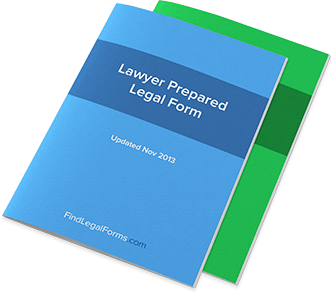Employment Contracts Legal Forms
Employment agreements for key personnel, general employment, management and independent contractors.

Forms
Employment Agreement FAQ
What is an Employment Agreement?
An Employment Agreement is a legally binding contract between an employer and an employee that governs their employment relationship.
What are the different types of Employment Agreements?
There are many different types of employment agreements ranging from those that govern general employment to those that focus on one element of the employment relationship.
- Standard Employment Agreement –is often used for non-executive positions and will include provisions such as salary, benefits, vacation, duties, etc. Typically these agreements will include an “at-will” provision, which basically means that either party may terminate the relationship at any time for any reason.
- Executive Employment Agreement – is used for higher-ranking employees. In addition to the standard provisions described above, this agreement may also include provisions governing equity grants, bonuses, and “for cause termination.” “For cause” termination refers to protections granted to the employee that require that the employer have a “cause” for terminating the employee or the employee will receive pre-determined severance compensation.
- Non-Compete Agreements – prohibit a terminated employee from competing with their employer by creating, assisting, operating or taking a position with a competitor. To be enforceable Non-compete Agreements must be reasonably limited in both scope (the types of business an ex-employee cannot work for) and time.
- Non-Solicitation Agreements – prohibit an ex-employee from recruiting colleagues or customers to a competitor.
What are Employment Agreements used for?
As described above, there are dozens of uses for employment agreements. In addition to the forms described above, other Employment Agreements are used to: (i) protect employers from any unauthorized disclosure of its trade secrets and proprietary information (i.e. Non-Disclosure and Confidentiality Agreements); (ii) address certain company policies (e.g. internet usage policies, etc.); or (iii) fulfill federal and state regulations which govern employment relationships.
What are the benefits of using Employment Agreements?
Employment Agreements ensure that the employer and the employee have a written, mutual understanding of their rights and obligations. If a problem occurs, the Employment Agreement will typically state a series of procedures to determine a solution or reach a resolution. If the dispute escalates, Employment Agreements are used to determine whether or not a party violated any contractual obligation(s).
Are Employment Agreements commonly used?
Although not generally required by law, Employment Agreements are used routinely in all types of companies and businesses regardless of size or industry.
What cannot be addressed in an Employment Agreement?
An Employment Agreement cannot violate, restrict or limit rights of the parties that have been provided by federal and state labor and employment laws.
What are the basic elementsto an EmploymentAgreement?
There are six basic elements to an Employment Agreement:
- Position - provides a specific description of the job and identifies the duties and responsibilities of the employee.
- Term - specifies the length of employment and will also state if the employment is seasonal, permanent, part-time, full-time, etc. Most employment agreements include an “at-will” provision, which means that the employment can be terminated by either party at any time for any reason.
- Performance - describes and establishes specific performance goals and milestones that the employee is expected to complete in a specified period of time. This provision may also include scheduled reviews and feedback procedures.
- Compensation - states the salary or wages due to employee during the course of employment.
- Benefits - describe any benefit package(s) that the employer will offer during the course of employment (i.e.health, dental, vision, insurance, etc.). Employers must ensure that the benefits described accurately represent the package the employee will receive.
- Termination – may describe certain actions or omissions of an employee that will result in termination and/or procedures that are to take place in the event of termination (i.e.return of company property, etc.).
What is at-will employment?
The At-Will Employment Doctrine defines an employment relationship where either party (the employer or the employee)can terminate the employment relationship without any liability, provided that there was no express contract specifying a definite term or other contract governing the employment relationship (such as a union’s collective action agreement). Under this Doctrine an employer is free to terminate or discharge an employee for cause or without cause and conversely the employee can quit freely and voluntarily.
What state laws govern Employment Agreements?
Both federal and state laws govern employment relationships and employment agreements.These federal and state bodies of laws include, but are not limited to:Equal Employment Opportunity laws, Family Medical Leave Act (FMLA), Americans with Disabilities Act (ADA) and Age Discrimination in Employment Act (ADEA), etc.
Where is an EmploymentAgreementenforceable?
Employment Agreements are enforced in all 50 states of the United States.
